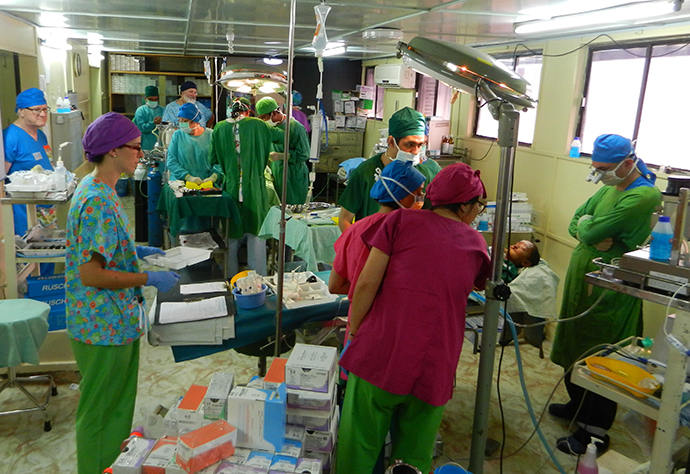In Bangladesh, hundreds with complex medical conditions go without treatment, forced to live a life stripped of opportunity because of a lack of skilled medical teams in their country.
But a humble group of surgeons, anaesthetists and nurses from the local area have been working to change this, taking annual trips to the third-world country to work in some of the most obscure conditions and hospitals, including one that floats on water.
This year’s Aussi Bangla Smile team, led by Nepean’s Dr Hasan Sarwar and consisting of two surgeons, two anaesthetists, seven nurses and an accountant, returned from the country earlier this year after having worked on 86 patients in just nine working days, with a large number of them complex surgeries.
The team undertook both uni and bilateral cleft lip and cleft palate surgeries, burn contracture surgeries and congenital deformity surgeries.
“These children could not go to school and these adults wouldn’t get the chance to have a job if not for this surgery. We have opened up their lives to opportunity,” said local registered nurse, Barbara Mitchell, who has taken part in four of the six Aussi Bangla Smile annual trips.
“One teenager [with a cleft lip and palate], Rozina, couldn’t keep her eyes off her face when we showed her a mirror post operation. It was the first time she could say ‘now I can get married’.”
In addition to treating patients, the team are also involved in training Bangladeshi nursing teams and doctors and providing medical facilities with equipment.
“It is very satisfying to see just how grateful these people, who would never have had this opportunity, are. To see their tears, joy and appreciation is overwhelming,” said Maryanne Miles, another nurse who took part in Bangla Smile 2014.
“This changes their lives forever – we here in Australia don’t realise what it is like over there.”
Cliff Mitchell, who looks after the accounts for the Aussi Bangla Smile team took part in the trip for the first time this year and was overwhelmed by the work of the surgeons, nurses and anaesthetists.
“One of the most impressive things wasn’t just the skill and knowledge of the medical team, which was impressive in itself, but what most impressed me was their courage to go into a country and work in these conditions with limited resources and equipment. That took more than skill and knowledge, that took guts,” he said.
The team is supported by Nepean Rotary, among other local organisations and people.
For more information or to support the team, visit http://www.facebook.com/aussibanglasmile.

